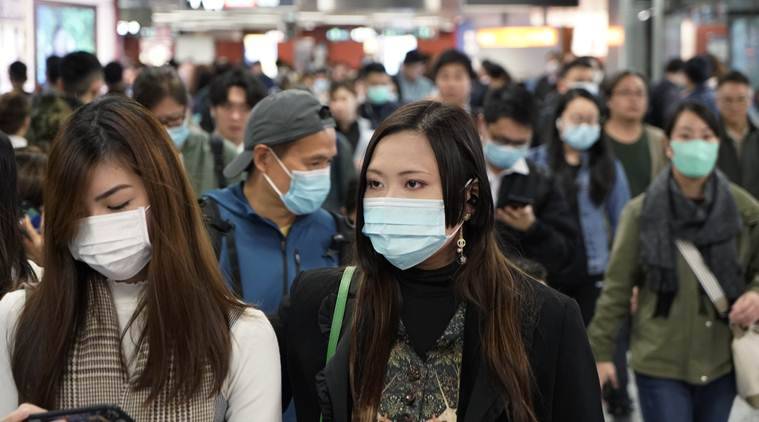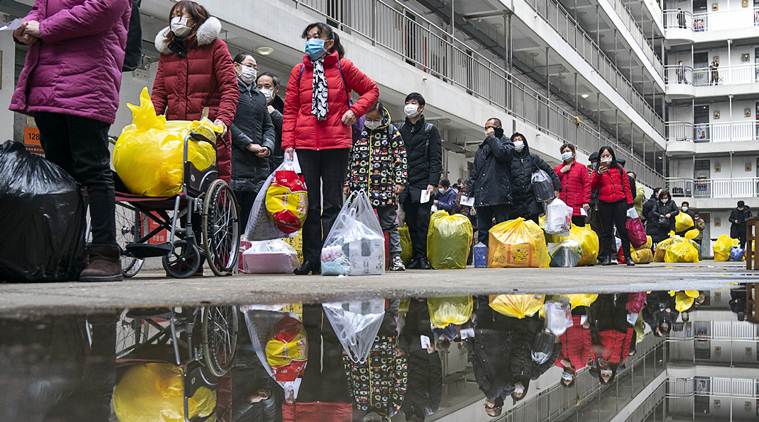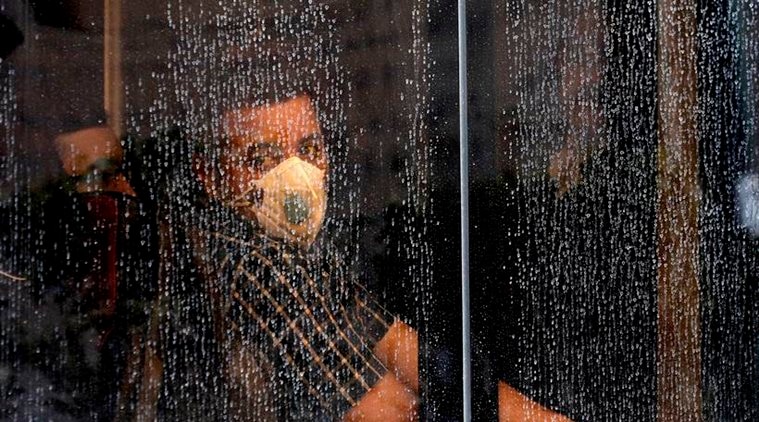 Coronavirus originated from the Chinese province of Wuhan and has been declared as a global pandemic by the World Health Organisation. (File)
Coronavirus originated from the Chinese province of Wuhan and has been declared as a global pandemic by the World Health Organisation. (File)
With the novel coronavirus (COVID-19) affecting more than 145,000 people worldwide and claiming the lives of over 5,400 people, a growing number of countries have ramped up their efforts to stem the outbreak. The World Health Organisation (WHO) has now declared Europe as the “epicentre” of the coronavirus pandemic as several European countries reported steep rises in infections and death. While Italy, the second worst-affected country, reported 1,266 deaths so far, Spain reported a 50 per cent jump in fatalities to 120. France and Germany have also witnessed a significant jump in the number of cases and deaths. Elsewhere in the United States, President Donald Trump has declared a state of emergency, declaring that “we will defeat this threat”.
Here are some curated stories from international media on the coronavirus pandemic.
What happens to the lungs of the coronavirus patient?
This Guardian article explains how coronavirus-caused pneumonia affects the inner human body, specifically the lungs. The cough and cold developed reaches the air passage between the lungs and the outside and injures it, which in turn irritates the nerves in the lining of the airway. In severe pneumonia cases, lungs become filled with inflammatory material and they are unable to get enough oxygen into the bloodstream.
The coronavirus pneumonia is relatively severe and different from any other type of pneumonia. This pneumonia tends to affect all of the lungs instead of just parts of it. People who are more vulnerable to get severe COVID-19 pneumonia are elderly (aged above 65) and have medical conditions such as heart diseases, diabetes, cancer or other chronic illness. Read the full story here.
 In this Tuesday, March 10, 2020, photo released by Xinhua News Agency, people recovered from coronavirus prepare to leave the rehabilitation center after a 14-day quarantine for medical observation in Wuhan in central China’s Hubei province. (Xiong Qi/Xinhua via AP)
In this Tuesday, March 10, 2020, photo released by Xinhua News Agency, people recovered from coronavirus prepare to leave the rehabilitation center after a 14-day quarantine for medical observation in Wuhan in central China’s Hubei province. (Xiong Qi/Xinhua via AP)
Is coronavirus giving way to a new kind of racism?
This Atlantic piece talks about the rapidly increasing xenophobia due to the outbreak and its intermingling with political conditions and political discourse in the country it spreads. Right-wing parties in Europe, for example, have latched onto the outbreak to reiterate their calls for tougher immigration restrictions—Italy’s far-right leader Matteo Salvini was among the first to exploit the virus for his own kind of pandemic populism, erroneously linking the outbreak to African asylum seekers and urging border closures. Similar calls to suspend Europe’s open-border system, known as the Schengen Area, have been made by far-right politicians in Germany, France, and Spain. In the U.S., President Donald Trump pointed to the outbreak as a further reason to construct a wall at the Mexico border. Read the full story here
 A commuter looks through a water-stained window wearing a mask and gloves to help guard against the Coronavirus, on a public bus in downtown Tehran, Iran, Sunday, Feb. 23, 2020. (AP Photo/Ebrahim Noroozi)
A commuter looks through a water-stained window wearing a mask and gloves to help guard against the Coronavirus, on a public bus in downtown Tehran, Iran, Sunday, Feb. 23, 2020. (AP Photo/Ebrahim Noroozi)
World leaders test positive, undermining global efforts to stem COVID-19
Canada’s first lady, Britain’s health minister, and several other government officials are themselves falling victim to the novel coronavirus undermining global efforts to deal with it, the New York Times writes. In a closely connected political world where officials crisscross the globe as they take part in frequent meetings with heads of state and other policymakers, the cases vividly illustrate how no one is immune from a virus that does not distinguish between the powerful and everyone else. Read the full story here.
Coronavirus crisis rock higher education
Schools faced upheaval after the September 2001 terrorist attacks and Hurricane Katrina in 2005. But this crisis feels different because its full dimensions are still unknown. Among the first to feel the effects: those studying in China, South Korea, Italy, and other hard-hit countries. Thousands have been forced to fly home early since the outbreak originating in China gathered momentum in January and began to spread around the globe. This week, as the outbreak intensified in the United States, a growing number of colleges and universities took unheard-of measures to reduce the risk of transmission through public gatherings. Read the full story in Washington Post here
East vs. West: Coronavirus fight tests divergent strategies
The Wall Street Journal looks into the novel coronavirus epidemic as experienced by two regions outside its origin country China. South Korea and Italy offer two bookends of how a country can tackle the coronavirus. Their divergent experiences hold telling lessons for the US and other democracies where the pandemic is at an earlier stage. Read the full story here